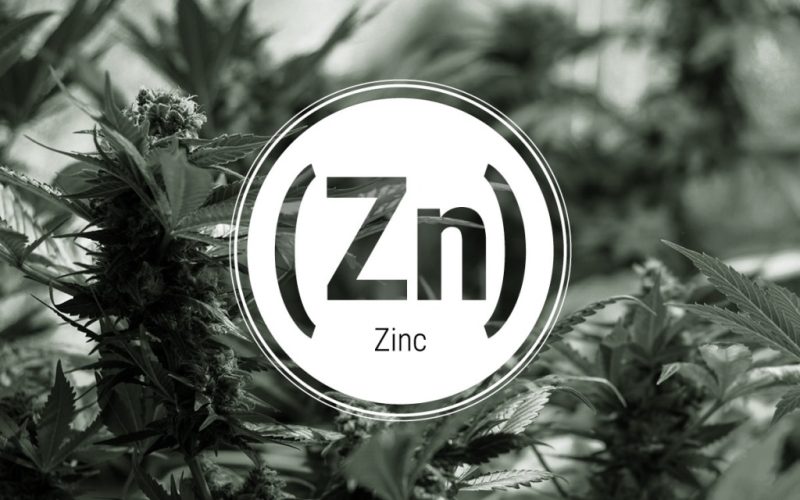Zinc though needed in trace amount by the body is an important mineral that the body can’t do without; it keeps the body healthy and when it is deficient many things go wrong.
Of the trace minerals needed by the body; zinc comes second to iron in its concentration in the body.
The body needs small amount of this mineral every day in order to carry out important metabolic functions and to maintain good health.
This mineral is present in all body cells and tissues and it supports healthy cell division; a little deficiency in this mineral results in an increased risk for diabetes , infertility and other health problems.
What are the functions of zinc in the body?
It boosts immune functions
This trace mineral strengthens the immune system and helps it to fight diseases and symptoms of illnesses. When taken frequently; it reduces the risk of one becoming sick with common cold and other diseases.
It can interfere with molecular process that causes mucus and bacteria to build up within the respiratory passage.
It makes the skin healthy
Due to its powerful antioxidant properties; this metal protects the skin against harmful UV rays and other dangerous forms of radiations; it is used in the production for collagen and this makes the healing of wounds faster and it also fights skin allergic reactions and prevents dry skin.
It can treat acne and this is because of its ability to regulate oil glands and the anti-inflammatory action it has on the skin.
It improves athletic performance and strength
Adequate levels of zinc boost the performance of athletes because it plays a primary role in the production of hormones; it allows for a more robust release of testosterone which is a growth hormone that increases strength and endurance capacity.
The mineral also increases the conversion rate of androstenedione to testosterone and helps the body to produce testosterone at a high rate. It can even boost recovery from training; it will increase energy and improve metabolism.
It fights cancer
This trace mineral is a powerful antioxidant that is effective in fighting cancer; it also fights inflammation, oxidative stress and cut the risks of diseases developing.
In elderly patients, this mineral supports healthy division of cell, halts the growth of tumors and prevents cancerous mutations.
It promotes brain health
This powerful mineral protects the brain and makes it healthy; due to its powerful antioxidant properties it eliminates heavy metals from the brain and prevents accumulation of heavy metals which can cause brain problems and damages.
It also maintains cellular homeostasis of the brain cells. These protective actions it has on the brain prevents brain diseases like dementia, Alzheimer’s disease and neuro-degeneration.
It improves fertility
Zinc can improve fertility and boosts reproduction by balancing hormones; it plays an important role in the production of hormones and it increases the levels of testosterone naturally which has varieties of roles in both men and women.
It supports normal release and functioning of the female sex hormone and it is involved in the creation and release of eggs from the ovaries and within the ovaries.
Deficiency of zinc in young men has been linked to reduced serum levels of testosterone; this can decrease libido and impact fertility negatively. Adequately level of zinc is needed in women to help the eggs mature properly and prevent ovulation problems.
It improves sleep, energy levels and cognition
This mineral plays a very important role in the functions of neurotransmitters and helps to maintain cognition; it is needed in the metabolism of melatonin which is the chief hormone in regulating sleep.
It regulates the activities of dopamine which energizes the body and gives an individual drive and focus; it also forms part of the enzyme that is needed for the buildup of fatty acids in the brain membrane and this makes the brain gets the nutrients it needs.
A deficiency of the mineral has been linked to Attention deficit hyperactive disorder (ADHD) in children.
It controls sugar level
This mineral balance the level of insulin in the blood; the main hormone responsible for regulating blood sugar.
Zinc can act as a natural diabetic cure because it binds to insulin and enables it to be adequately stored in the pancreas and makes it to be released when there is glucose in the bloodstream.
It also helps the body to properly utilize digestive enzymes that are necessary for insulin to bind to cells; this makes glucose to be used as fuel instead of being stored as fat.
It fights depression and elevates mood
The exact way zinc does this is not yet known but it is believed to be by the role the mineral plays in the activities of neurotransmitters and in the production of hormones.
Zinc partly regulates dopamine which is a chemical messenger that boosts mood, energy and learning. A deficiency I this mineral has also been linked to depression in women.
It protects the blood vessels
Zinc supports a healthy heart and maintains the health of cells within the cardiovascular system; it lowers oxidative stress and fights inflammation.
The thin layers of cells (endothelium) that line the blood vessels needs adequate levels of zinc to function well; this mineral supports healthy circulation of blood, it reduces high blood pressure and high cholesterol and it removes cholesterol and plagues for clogged or damaged arteries.
It supports thyroid functions
The body uses zinc to make the hormone (TRH) that signals the thyroid glands to make thyroid hormones; it converts proteins into amino acids including tyrosine which supports the production of the thyroid hormone.
It prevents diarrhea
Deficiency of this mineral has been linked to diarrheal diseases and other chronic digestive problems; it can cure acute diarrhea and prophylaxis.
It helps in the formation of bones
Enzymes use zinc to produce collagen and alkaline phosphate which are the raw material for the formation of bones. Zinc is also used in the formation of calcitonin which is a hormone that prevents the breakdown of bones.
It supports healthy digestion of food
Zinc plays a role in the synthesis of protein; this supplies the body with amino acids which it uses. It helps the body to break down carbohydrates which is the main source of energy for the body.
A deficiency in this mineral can lead to low levels of energy in the body and it can contribute to chronic or adrenal fatigue. Consuming enough zinc makes one healthy and vibrant with energy.
It is involved in cell replication
30% of zinc found in a cell is located inside the nucleus of a cell; it is used in the replication of cells and proteins needed by the body and it is also involved with DNA.
It protects the liver
This mineral protects the liver and reduces the incidence of infection; it prevents liver damage and can help detoxify the liver and reduce inflammation.
It also stops the activities of free radicals and reduces the damages done by free radicals; it supports proper elimination of waste and toxins and helps with nutrient absorption.
It supports good vision
Poor night vision has been linked to zinc deficiency; its strong antioxidant properties stop the activities of free radicals which can cause oxidative damage, this protects the eyes from age related muscular degeneration.
The mineral also helps the liver to synthesize vitamin A which is an important vitamin that supports good eyesight. Zinc is also transported to the eye through the blood.
It helps with muscle growth and development
This mineral plays an important role in cell growth and cell division; it helps the muscle to repair itself and grow, it also strengthens the muscular and skeletal system. It helps with the release of growth hormones which supports a healthy metabolism and build muscle mass.
It is a good antioxidant
This mineral is a great antioxidant as it protects the cell membranes from oxidative damages caused by free radicals; it also forms part of superoxide dismutase which is an important antioxidant in the body and the liver uses this antioxidant to eliminate waste and toxins by binding them to the toxins meant for elimination.
What are the natural sources of this wonderful mineral?
The best way to have an intake of this wonderful mineral daily is to eat at least a food, fruit or vegetables that contains zinc every day; this will make this mineral always available for your body and natural sources have no risk or side effects of toxicity because they contain zinc in very little quantity.
The best natural sources of zinc are animal proteins because they have no phytate which binds to zinc and prevents the body from fully absorbing this mineral; grass fed and organically raised beef, pork and lamb has more zinc than fish and the dark meat of a chicken has more zinc than the light meat.
Nuts, whole grains, legumes, chickpeas, cashews, cocoa powder, pumpkin seeds, dark green leafy vegetables and yeast are good plant sources of zinc.
Eggs, yogurt, milk (the milk must be raw, unpasteurized and organic), liver, seafood, cheese, pinto beans, sunflower seeds, almonds, peanut butter, sea vegetables like kelp and spirulina, garbanzo beans, salmon, turkey and mushrooms are also good sources of zinc.
What about zinc supplements?
There are zinc supplements that are in most multivitamins and minerals; these supplements may contain zinc gluconate, zinc sulfate or zinc acetate.
These can be taken but there must be prescribed by a doctor in cases of severe zinc deficiency; because supplements when taking over a long time can lead to toxicity.
Sometimes they can even react with drugs and sometimes certain medications can affect the absorption of zinc; synthetic zinc can also impair with the body’s absorption of other important minerals including copper.
People who use nasal sprays and nasal gels containing zinc may lose their sense of smell.
What are the side effects of overtaking zinc supplements?
The upper intake level for an adult is 40 mg per day; but when taken in large amounts and for a long period of time it can leads to severe reactions which can be the total opposite of what zinc does in the body.
Before you start popping zinc supplement at random, take note of the possible side effects which includes diarrhea, abdominal cramps, vomiting, copper deficiency, iron deficiency, suppressed immune system, impaired formation of blood cells, changes in ability to taste or smell foods, loss of appetite, indigestion, infertility and heart problems.
What happens when zinc is deficient in the body?
Deficiency of this mineral can lead to lots of problems in the human body and it occurs when one do not eat enough foods that contains zinc or has problems absorbing and utilizing zinc due to digestive problems; some of the symptoms are frequent cases of infection, hypogonadism in males, poor appetite, headaches, fatigue, weight gain or weight loss, dry skin, stretch marks, white spots on the nails, acne, diarrhea and other digestive problems, infertility, poor concentration, loss of hair, problems with sense of smell, problems with sense of taste, slow growth, ringing in the ears, hormonal problems that can worsen PMS, menstrual problems and menopause symptoms, poor memory, low immunity, skin sores, inability of wound to heal or prolonged or slow wound healing, diabetes, dysfunction of the nerves and trouble seeing in the dark.
How to know if you are deficient in zinc?
Red blood cell zinc test: This is the best way to know the level of zinc in your body; this test measures the level of zinc in your bloodstream.
Hair testing: This involves analyzing a sample of hair to know the level of zinc one has in the body.
Other methods which are less reliable especially in people with zinc deficiency are:
Zinc oral taste test: This test is usually conducted at the pharmacy; it involves taking a mild solution of zinc in the mouth and based on the taste felt, the levels of zinc can be accessed in the body.
- Grade 1 (poor zinc status) – in this case, the patient feels no specific taste and sensation; the solution tastes just like water in the mouth.
- Grade 2 (mild deficiency) – in this case there is no initial taste but gradually it starts to taste dry, mineral like, furry or sweet.
- Grade 3 (good zinc status) – there is a definite taste straight away that intensifies over time.
- Grade 4 (optimal zinc status) – in this case, the patient feels a strong and unpleasant metallic taste immediately that does not go away for ages.
Risk factors for zinc deficiency
There are some lifestyles or medical conditions that put one at risk of zinc deficiency and they include:
- Vegetarians: This set of people are prone to zinc deficiency because they eat only plant based foods and don’t include animal food sources which are the highest food sources of zinc; whole grains, legumes and vegetables have phytate which is an antinutrient that binds to zinc and makes it hard for the body to absorb it.
- High levels of copper, iron and calcium in the body can impair the absorption of zinc.
- Oral contraceptives:
- Athletes: Due to high perspiration, they can lose a lot of zinc.
- Digestive problems: People with digestive problems like impaired absorption, inflammatory bowel disease, and leaky gut syndrome, severe stomach acid issue, and so on can have persistent diarrhea which can make this mineral deficient.
- Women on birth control pills or hormone replacement therapies are prone to a deficiency in zinc because these drugs can interfere with the role zinc plays in the body, especially in relations to hormones.
- High intake of processed carbohydrate foods can cause this because of the anti-nutrient present
- Diseases like diabetes and kidney or liver diseases.
- High intake of caffeine and alcohol
- Antacids and antibiotics
- Stress can decrease the level of zinc in the body while it increases the level of copper which can impair the absorption of zinc.
Dietary reference intake for zinc
According to the USDA, these are the dietary reference intake for zinc based on age and gender.
Infants:
- 0 – 6 months: 2 mg/day
- 7 – 12 months: 3 mg/day
Children:
- 1 – 3 years: 3 mg/day
- 4 – 8 years: 5 mg/day
- 9-13 years: 8 mg/day
Adolescents and adults:
- Males age 14 and over: 11 mg/day
- Females age 14 to 18: 9 mg/day
- Females age 18 and over: 8 mg/day
- Pregnant females: 11 mg/day
- Lactating females: 12 mg/day









